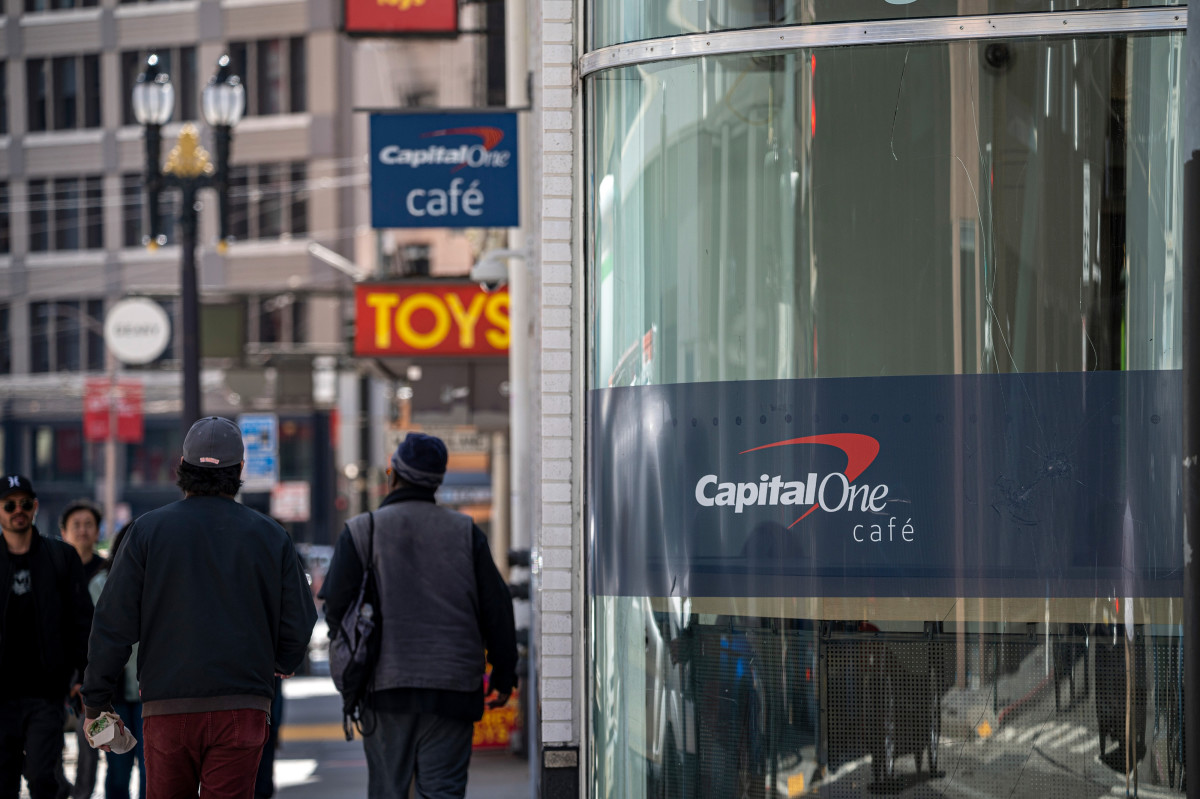
Chris Davis, portfolio manager at Davis Advisors, has a 35-year track record of investing in large-cap value stocks, particularly in the financial sector. Like all value investors, he looks to buy solid businesses at discounted prices.
The financial industry, particularly banking, is quite attractive now, Davis says. With the regulations implemented after the 2008 financial crisis, he sees U.S. banks as safer than ever.
And investors are overly pessimistic toward the stocks, he says.
The Davis Financial Fund that he co-manages has annualized returns of 10.52% for the last 12 months, 11.45% for the last three years, 8.91% for the last five years, 8.72% for the last 10 years, and 11.72% for the last 15 years, according to Morningstar. The fund beat its category average for all of those periods.
We recently chatted with Davis about his investing. Here’s what he had to say.
TheStreet: What is your investment philosophy?
Davis: The financial sector is growth stocks in disguise [as value stocks]. You can uncover opportunities in businesses doing great at below average prices. We have a long-term focus, holding stocks five to 10 years or longer.
TheStreet: What’s the attraction of large-cap value stocks?
Davis: As legendary actress Mae West said, too much of a good thing is wonderful. If you overpay for an attractive business, you could be stuck with a great business turning into a bad value. Value and growth are joined at the hip. You want a resilient business that grows over a long period, but you don’t want to overpay.
TheStreet: What’s the attraction of financial stocks?
Financial stocks, banks in particular, represent the best opportunities in today’s market. They have durability plus a very low price. They are safer than ever, with more capital, less credit risk and have been stress tested since the [2008] financial crisis. That’s thanks to regulation after the crisis. And bank valuations are about as discounted to the market as they have ever been.
TheStreet: What are other industries that you like?
Davis: We like companies that benefit from healthcare inflation. Because of valuation, we like insurers like Cigna (CI) -) or generic drugmakers like Viatris (VTRS) -). Part of it is lower costs. Also, these are companies with long-lived, cash-producing assets.
We also like mining company Teck Resources (TECK) -). It has long reserves and pricing power.
And we like the picks and shovels of the technological revolution. For example, Applied Materials (AMAT) -) makes equipment that makes semiconductors. We also like Texas Instruments (TXN) -) and Samsung (SSNLF) -).
There are also a handful of first-rate global media franchises: Meta (META) -), Alphabet (GOOGL) -) and Amazon (AMZN) -). The key is not to overpay. Meta and Alphabet are priced at market multiples or less, unlike Tesla (TSLA) -) and Nvidia (NVDA) -).

Davis Funds
TheStreet: What are industries that you don’t like?
One risky area is overvalued safety stocks. When people get nervous, they want socks that haven’t gone down, such as consumer and utility stocks. But they’re overpaying for the illusion of safety. These stocks are overvalued compared to their fundamentals.
Then there are companies with so much euphoria, like some of the Magnificent 7 [Alphabet, Amazon, Apple (AAPL) -), Meta, Microsoft (MSFT) -), Nvidia and Tesla]. They may work out fine. But you’re playing a dangerous game if you don’t have attractive valuations. Momentum investing is very dangerous. It works until it doesn’t.
There’s also euphoria over artificial intelligence. I’m a huge AI bull. But just buying stocks associated with AI is a dangerous approach.
TheStreet: What are three of your favorite stocks?
1. At the top of the list is Capital One (COF) -). It’s a financial technology company disguised as a financial. It may be one of the greatest fintech companies of the last 30 years. It’s still run by the founder who has had an amazing record of success.
It has a data-driven culture that happens to be in a bank and credit-card business. It’s trading at six to seven times earnings and less than book value, with a return on equity in the low- to mid-teens.
2. Wells Fargo (WFC) -). Everyone rolls their eyes over this one, because they see the bank always struggling. But it’s in the midst of a long, gradual turnaround. It’s an incredible franchise, with customer stickiness and a management making progress on a whole list of prior ills.
They dealt well with the sharp rise in interest rates, proving conservative rather than aggressive on interest rate risk. They are making all the right long-term decisions, yet the stock trades at a huge discount to its competitors.
3. Bank of New York Mellon (BK) -). Everyone thinks this is a bank. But in many ways it’s a financial plumbing company and utility for capital markets. It’s deeply involved in areas such as institutional custody and bond trusts. That’s an area served by just a handful of banks, including JPMorgan (JPM) -) and State Street (STT) -). It’s an oligopoly.
There’s very little credit or interest-rate risk for BNY. It has very good returns – 20% return on equity, which isn’t typical for a bank. It was founded by Alexander Hamilton, so it’s obviously resilient.
The author of this story owns shares of Selected American Shares, a mutual fund that Davis co-manages; Viatris; and Bank of New York Mellon.







